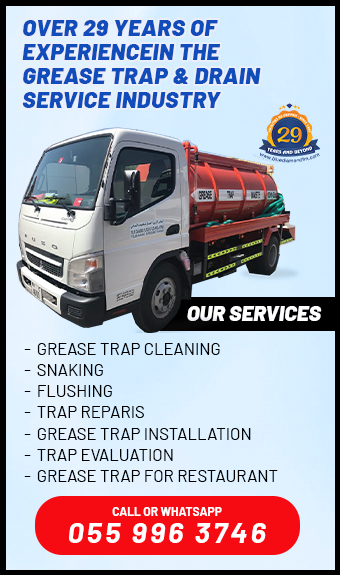5 Hidden Signs of Grease Trap Blockage Every Chef Should Notice
Early detection saves kitchens time, money, and reputation. In fast-paced UAE commercial kitchens, knowing the hidden signs of grease trap blockage can prevent messy backups, health-code violations, and costly downtime. This guide explains five subtle warning signs chefs and managers should watch for, what each sign means, and practical steps to fix and prevent problems.
Why Recognizing Hidden Signs of Grease Trap Blockage Matters in UAE Kitchens
Grease traps intercept FOG (fats, oils, and grease) before it enters the drainage system. When grease traps begin to fail, early symptoms are often easy to miss — faint smells, slow drains, or strange noises. Ignoring these hidden signs of grease trap blockage can escalate into full blockages, causing operational disruption, compliance issues, and expensive emergency repairs. For restaurants across Dubai, Abu Dhabi, and the UAE, timely action ensures smooth operations and municipal compliance.
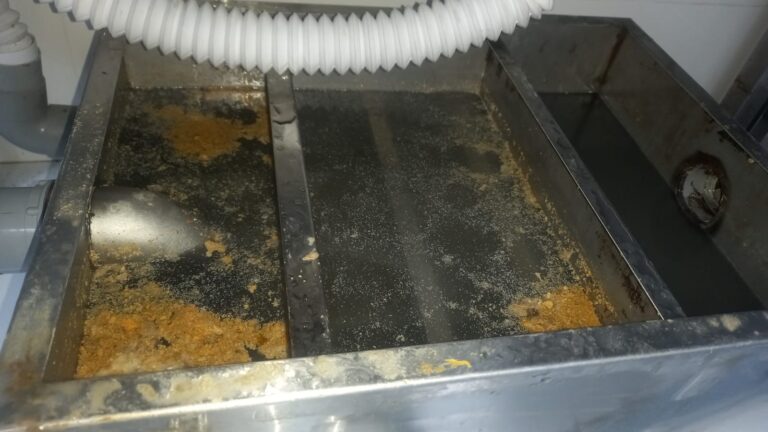
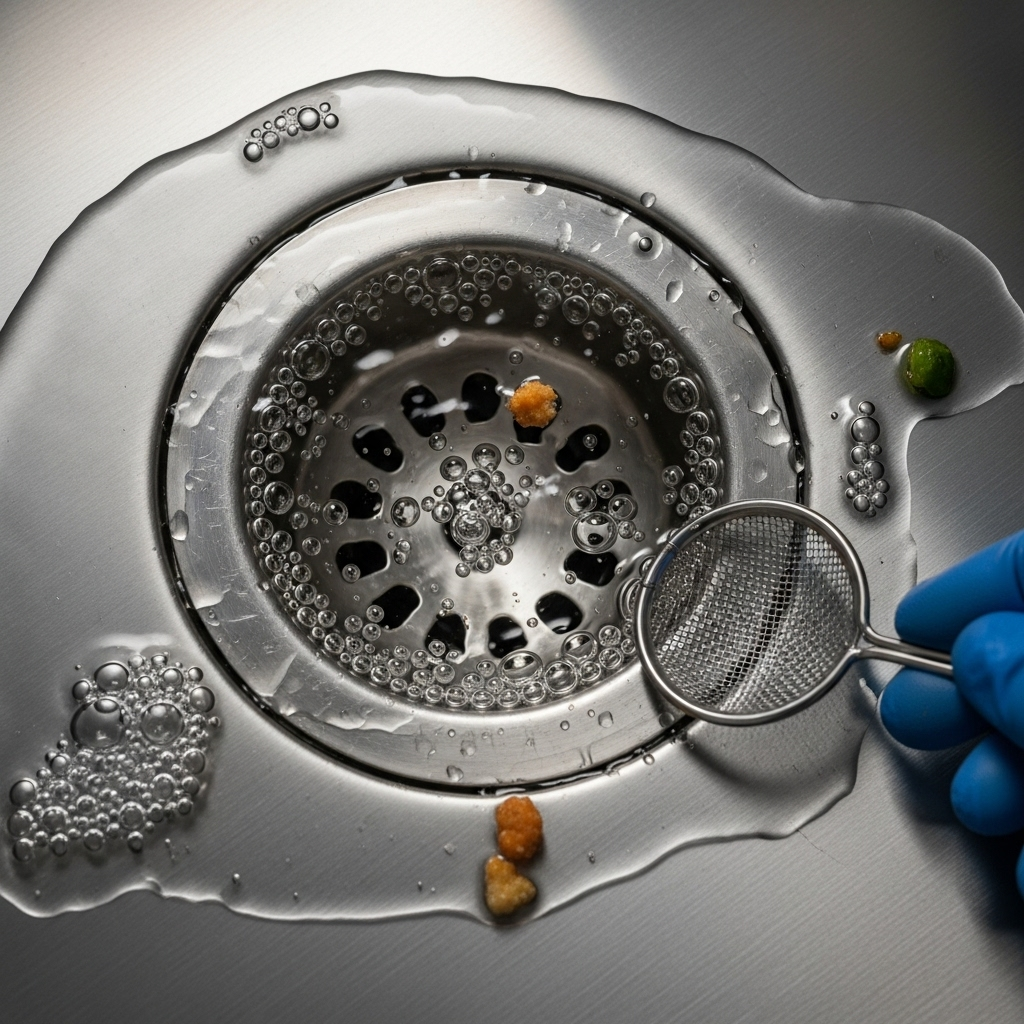
How it appears
A low-level sour or rotten-oil smell near sinks, mop stations, or service corridors that lingers despite routine cleaning.
Why chefs should care
Smell is often the first chemical indicator that trapped FOG is breaking down anaerobically. A faint odor can quickly spread to dining areas, generating complaints.
Risks if ignored
Attracts pests such as flies and cockroaches
Lower sanitation scores during inspections
Negative reviews and reputational damage
Hidden Sign 1: Persistent, Subtle Foul Odors
Hidden Sign 2: Slow Drainage in Sinks and Dishwashers
How it appears
Water pools in sinks or dishwashers empty slower than usual; floor drains show reduced flow after heavy use.
Why chefs should care
Slow drainage indicates partial obstruction — grease lining the pipe walls narrows flow paths. This is a precursor to full backups.
Risks if ignored
Sudden overflow during peak hours
Cross-contamination from wastewater
Emergency repair costs and downtime
Hidden Sign 3: Strange Gurgling or Bubbling Noises from Drains
How it appears
Intermittent gurgles, bubbles, or knocking sounds in waste lines, especially when multiple sinks are in use.
Why chefs should care
Noises often indicate trapped air and irregular flow caused by partial blockages. This is a mechanical clue that a grease trap or outlet pipe is compromised.
Risks if ignored
Stress on pumps and fixtures, causing mechanical failure
Increased risk of sewer gas entering the kitchen
Escalation to major plumbing faults
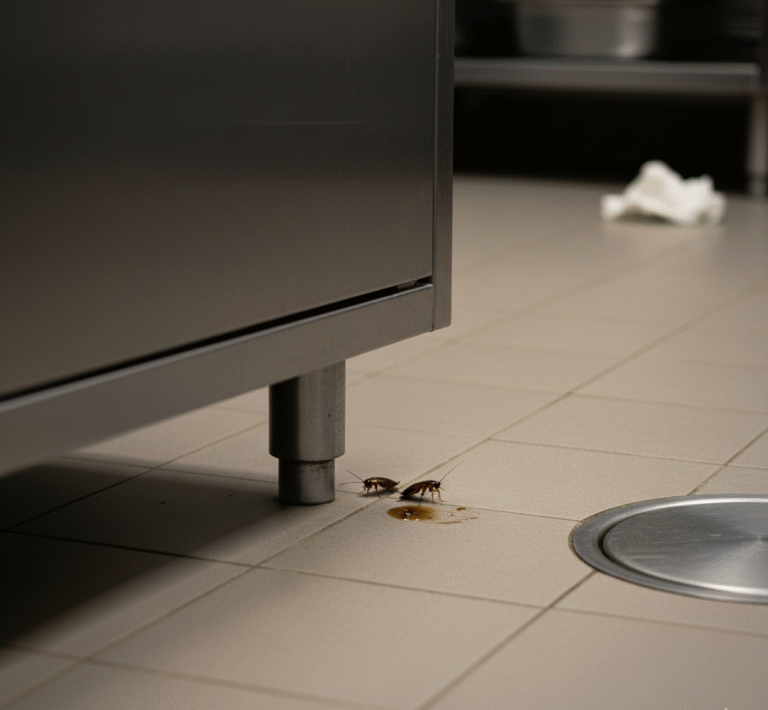
Hidden Sign 4: Increased Pest Activity Around Drains
How it appears
Frequent sightings of cockroaches, flies, or rodents near drain covers, grease trap lids, or storage areas.
Why chefs should care
Pests are attracted to decomposing FOG and trapped food solids. Visible pest activity signals sanitation gaps and possible grease trap compromise.
Risks if ignored
Health-code violations
Contamination risks to food preparation areas
Costly pest-control interventions and reputational damage
Hidden Sign 5: Unexpected Kitchen Downtime or Recurrent Plumbing Emergencies
How it appears
Recurring short-term shutdowns for cleaning, repeated emergency calls to plumbers, or temporary restrictions on sink or dishwasher use.
Why chefs should care
Recurring issues indicate temporary fixes aren’t addressing the root cause. The grease trap, outlet lines, or interceptors likely need professional attention.
Risks if ignored
Significant revenue loss during closures
Potential municipal enforcement fines or temporary closure
Lengthy repairs and higher bills
Prevention & Practical Solutions
Detecting the hidden signs of grease trap blockage early is only half the battle — prevention is key.
Routine Checks & Daily Habits
Train staff to scrape plates and use drain screens
Run hot water with approved detergent at the end of shifts
Include a short “drain & odor check” in shift handovers
Scheduled Professional Maintenance
Contract accredited grease trap cleaning services
Maintain service reports and disposal manifests for UAE inspections
Staff Training & Kitchen Best Practices
Educate staff on recognizing the five hidden signs
Use labelled containers for used cooking oil
Partner with licensed FOG collectors
Emergency Readiness
Keep 24/7 emergency grease trap service contacts handy
Have a simple response plan: isolate area, stop non-essential sink use, call provider, log incide
Compliance Matters: Documentation & UAE Rules
Dubai Municipality and other UAE authorities require consistent maintenance and records. Acting promptly on hidden signs of grease trap blockage and keeping service logs reduces inspection risks and demonstrates due diligence:
Save service invoices and disposal manifests
Maintain technician reports with dates, times, and volume removed
Keep maintenance contracts and inspection logs
Spot the Signs Early, Protect Your Kitchen and Reputation
Recognizing the hidden signs of grease trap blockage lets chefs stop small problems before they become disasters. Regular inspections, staff awareness, and trusted licensed service partners in the UAE form the foundation of a compliant, efficient kitchen.
Don’t wait for a backup. Book a professional grease trap inspection and cleaning today for a custom maintenance plan and compliance-ready documentation for your UAE kitchen.
Most Frequently Asked Question
The most common hidden signs of grease trap blockage include foul odors, slow drainage, strange gurgling noises, pest activity, and sudden kitchen downtime.
Foul odors come from trapped fats, oils, and grease breaking down inside the grease trap. Lingering smells are an early warning sign that cleaning is overdue.
Blocked grease traps can cause plumbing issues, attract pests, and even lead to health inspection penalties. In Dubai, regular maintenance is vital for compliance.
Cleaning frequency depends on kitchen size and cuisine type, but in the UAE, most commercial kitchens require grease trap cleaning every 1–3 months
Yes. With proper training, chefs and staff can spot early signs like slow drainage or unusual noises and schedule professional cleaning before emergencies occur.
Professional cleaners ensure compliance with Dubai Municipality standards, use safe methods, and help prevent costly downtime from unexpected grease trap problems.
Our Services
Our step-by-step guide simplifies the cleaning process, ensuring a hassle-free experience while keeping your traps clean.
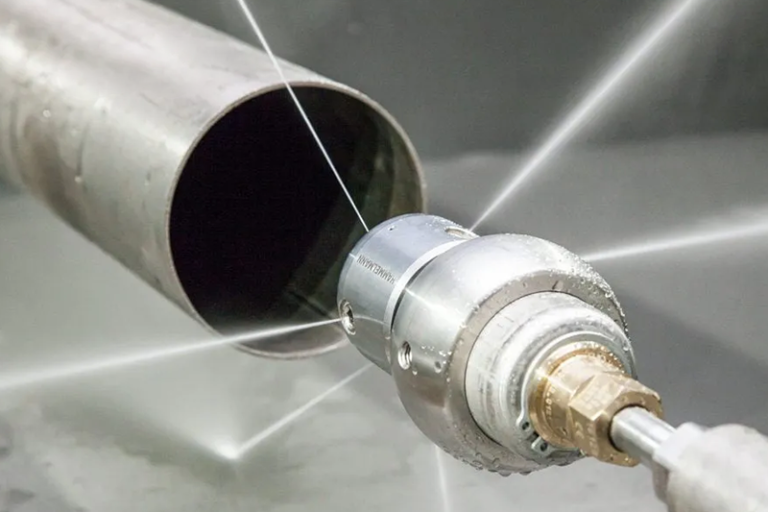
Drain Line Jetting
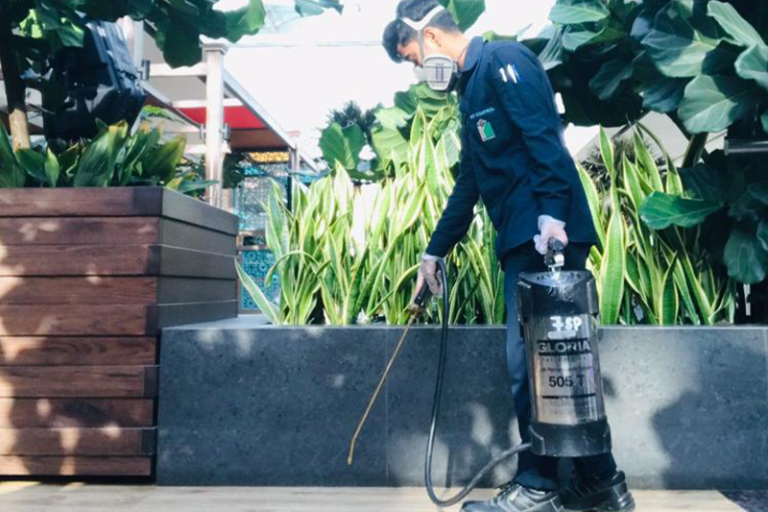
Pest Control Service
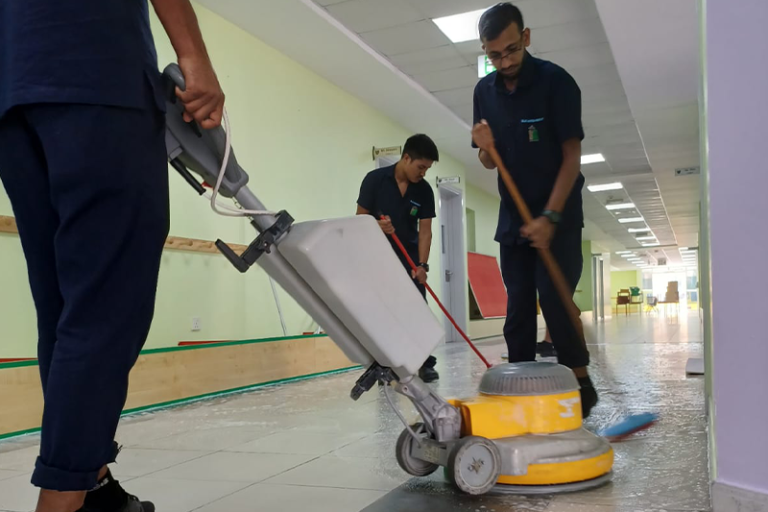
Deep Cleaning
business
Our Working Process
Let’s start the journey towards success and enhance revenue for your business. Take your company to the next level.
Book An Appointment Today
Blue Diamond would like to hear from you. if you have business inquiries. Get in touch with us.





